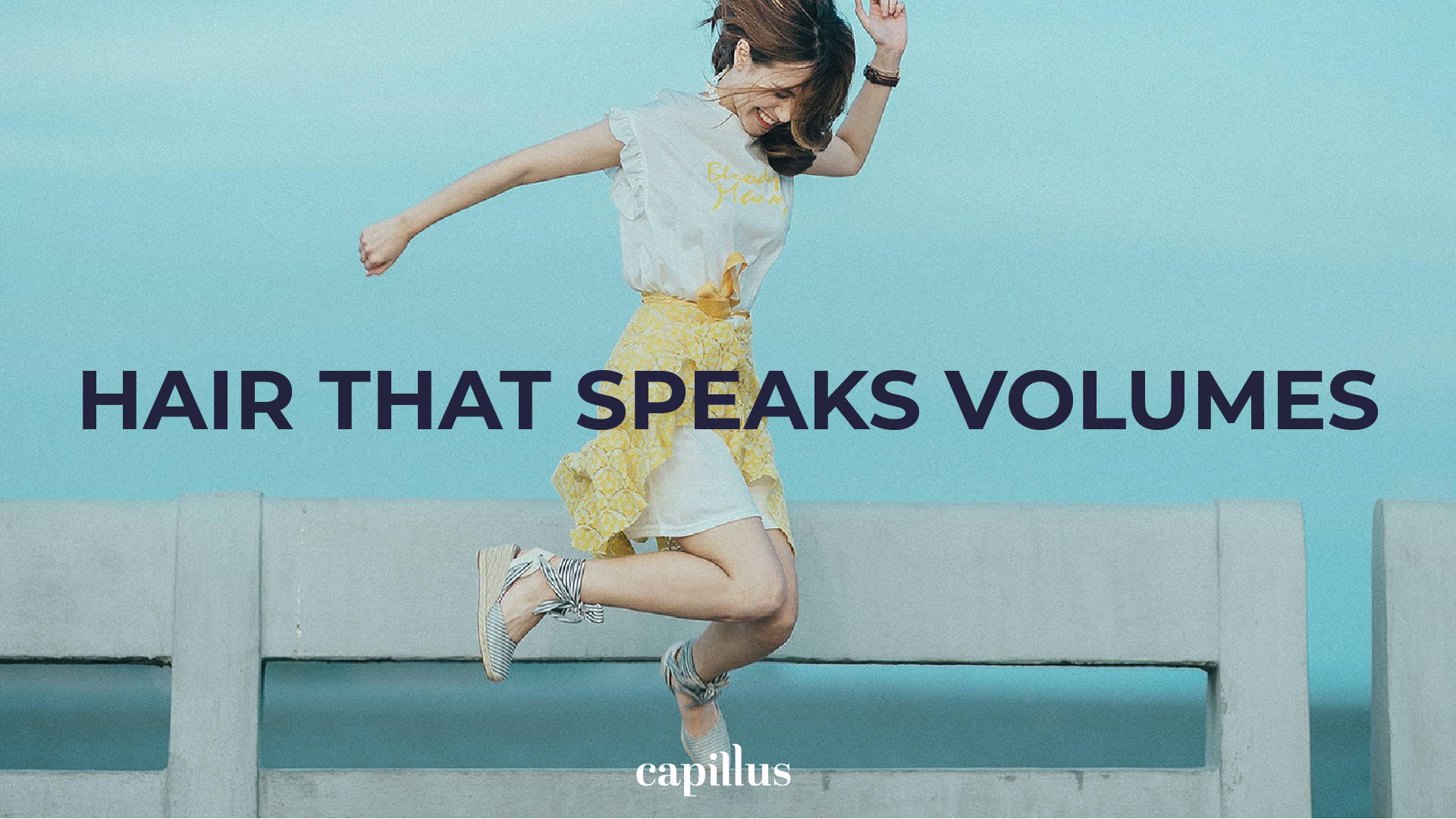How Does Hair Loss Touch Your Body, Mind & Soul?
Finding and practicing healthy and enriching ways to cope with hair loss is key. A commitment to your wellness and happiness provides an excellent foundation for enhancing your hair and scalp health. Know that you are worth every change that you make in the coming days and weeks. By focusing on the hair you have and the habits you can add to nurture it, you will be able to enjoy an improved mood, as well as thicker, healthier hair.
As Capillus’ new copywriter, hair loss has been a personal crisis that seems so profoundly familiar. I have found my drain clogged in moments of stress and have thought about my bald father as I brush, only to find a blanket of hair coating my floor.
While losing your hair can alter aspects of your appearance, it can definitely affect your mental health. This can be so powerful; the confusion about why this is happening can make you feel out of control.
Although losing hair is a very physical phenomenon, it comes from a very profound part of our being, and we’re not talking about hair follicles. We’re talking about your mind and feelings of self-worth. No matter how confident you are, the reality of finding yourself in these situations is daunting and nerve-wracking.
But if it’s managed through a lens of positivity, it can be fruitful in many different aspects of wellness!
Glass Half Full
Mental Health & Hair Loss
Both men and women experience some degree of hair loss during various moments of their lives. While it is typical for thinning hair to occur because of aging, there are various other reasons as to why people can lose hair from their scalp.
Here at Capillus, we find all age groups inquiring and googling their concerns on stopping hair loss. Whether the reason is female and male pattern baldness (also known as androgenetic alopecia), thyroid disease, or iron-deficiency anemia the emotional toll is the same. Stress, emotional trauma, and hormonal changes can also cause a change in hair thickness or texture. Whatever your reason, this moment in the shower with hair clogging the drain is a private moment of PANIC most people can connect with.
Information Is Key
Knowing the causes of hair loss, in general, can give you a sense of security. Once you have information in your toolbox, it will be easier to make decisions about improving your overall wellness! Whether visiting a doctor or changing your nutrition, there are many steps you can take to bring peace and power to the conversation of hair loss.
One of the most common questions people have is, can stress cause hair loss?
No matter the cause, LOSING HAIR will undoubtedly cause you to be “in your feelings,” and there’s no shame about that. The initial response is confusion, which is an OK feeling to have as you come to terms with the reality of hair loss. Still, it is essential to be aware that stress itself can cause heightened forms of certain alopecias and can make the situation worse than it already is.
Simply put, BREATHE. When you stress about losing your hair, this alone may cause you to lose more of it. This means the relationship between stress and losing your hair often becomes a vicious cycle.
Why We All Need To Stop Stressing
While stress is not directly linked to average hair loss, Verywell Mind says that too much physical or emotional stress can contribute to losing your hair. In fact, there are a couple of different hair-related conditions that can occur after suffering severe emotional stress or trauma.
Telogen effluvium occurs when the hair on your head stops growing. In this scenario, hair lies dormant on the scalp for a couple of months and then starts to fall out. After a few more months, hair will begin to grow back. If you are diagnosed with this condition, managing your everyday stress and coping with trauma can help you to reduce your symptoms so you can develop healthier hair again. Start from within.
The second condition involving hair loss and stress is alopecia areata. When you are stressed out regularly, your body may begin to make excess white blood cells to fight off what it perceives as a threat. The attacking white blood cells may also damage your hair follicles, resulting in hair falling out in patches.
Learn To Be Gentle As You Cope With Hair Loss
A key element to avoid in its entirety is depression and anxiety. When you’re worried about how you look while experiencing hair loss, your stress may turn into your own medical, emotional condition. A recent study on alopecia in adults shows that anxiety and depression are elevated when someone experiences more severe forms of alopecia, even if temporary.
The first thing to note is everything is going to be OK. Instead of focusing on the hair that you don’t have, focus on what you do have and how to change your outlook to find yourself in a place of positivity, which can only help you condition emotionally and physically.
Treating symptoms of anxiety and depression as soon as they begin can help you prevent mental health problems that lead to more hair loss. It can also help you to focus more on improving the health and look of your hair. Watch for signs of feeling anxious or depressed like irritability, trouble sleeping, and decreased energy. Other common symptoms include changes in appetite, body pain and difficulty concentrating.
Choosing the Right Laser Therapy Cap for Your Needs
Here at Capillus, we provide three different Low-Level Laser Therapy (LLLT) devices, to help you tackle hair loss and give you the confidence you need to grow into a hair nurturing lifestyle. The best part? This particular hair loss solution does not use any invasive procedures or pharmaceuticals.
There are many benefits to choosing the laser therapy cap for your needs. Unlike other treatments for hair thinning or loss, wearing a photobiomodulation (PBMT) device like a Capillus® laser therapy cap for just six minutes per day has no known adverse side effects.
One of our most popular products, the CapillusUltra is the most economical and convenient model. It provides 410 mW of laser energy to help you grow healthier hair. If you have been pricing out different options, know that it also provides 100% laser diode technology and more considerable scalp coverage than similarly priced comb or helmet gadgets.
When you need the right combination of power and affordability, you may want to choose our mid-range device, the CapillusPlus. This laser therapy cap provides 1010 mW of laser energy, 2.5x more lasers than the CapillusUltra.
For 3.3x the scalp coverage and 1360 total MW of laser energy, select the CapillusPro. Our premier device provides the professional-grade treatment. No matter which device you choose, you will enjoy discreet therapy in the comfort of your home, all under your hat.
When used in combination with other hair loss aids, LLLT can help you grow healthier hair and reduce the effects of poor mental health on your appearance.
If you think you need assistance with your depression, stress, or anxiety symptoms, don’t hesitate to talk to a doctor. Having a conversation with your primary care physician can help you to find resources that work for you.




















